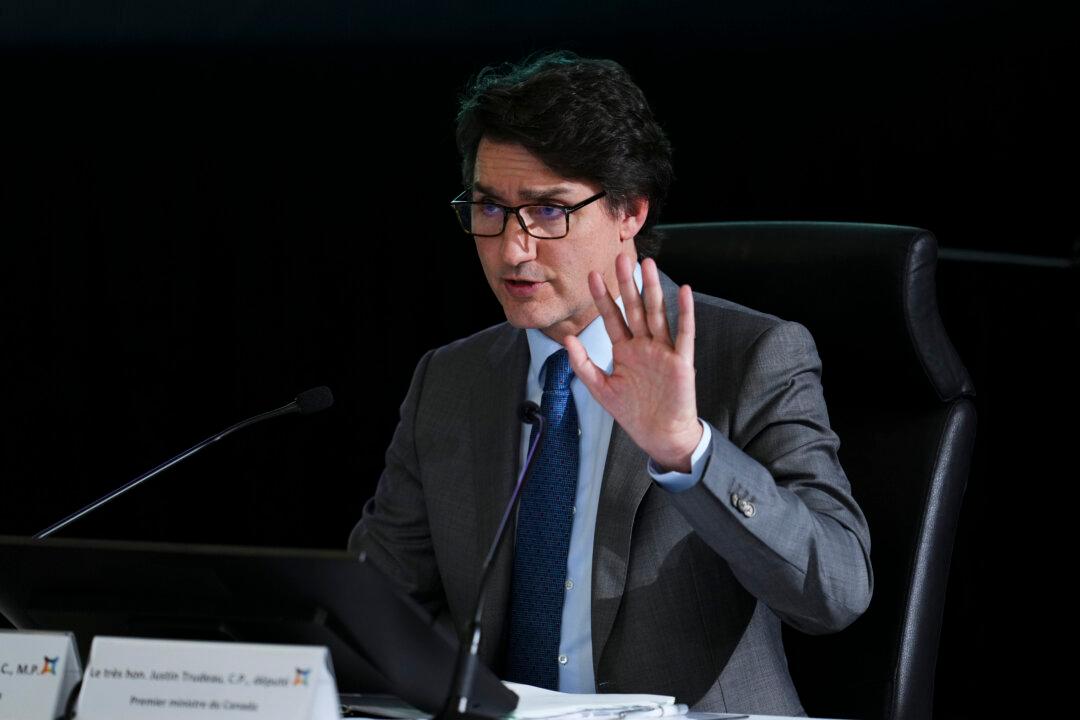Prime Minister Justin Trudeau has pushed back on intelligence information suggesting that the Chinese regime favoured the Liberal Party in a previous election.
“While individual officials may well have expressed a preference or another, ... it would just seem very improbable that the Chinese government itself would have a preference in the election,” Mr. Trudeau said as he testified before the Public Inquiry into Foreign Interference on April 10.





